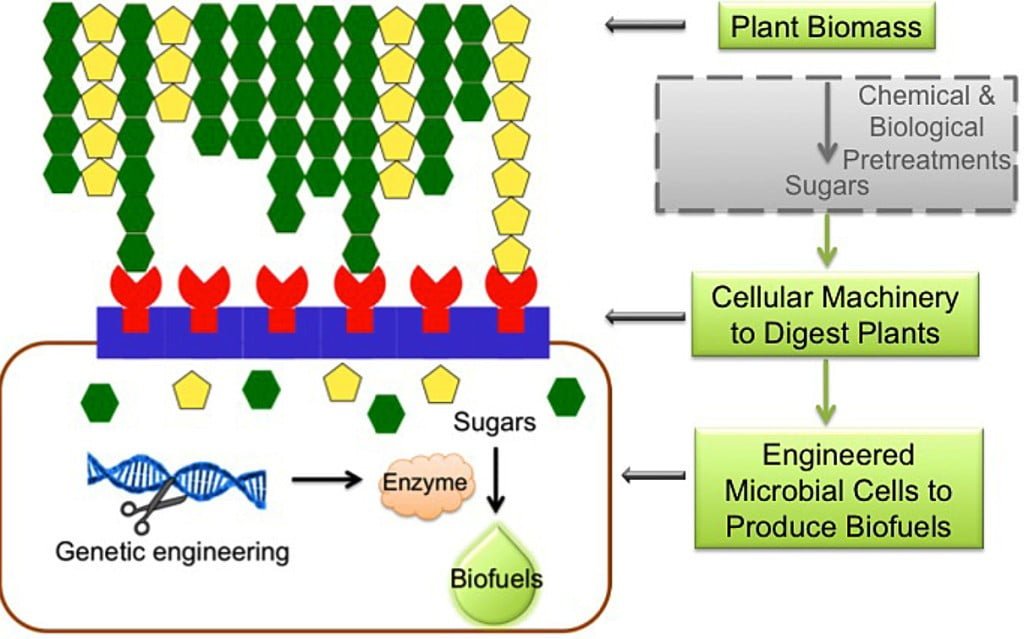Biofuels have attracted increasing interest due to economic, geopolitical and environmental concerns caused by fossil fuels. It is a renewable, sustainable and environmental-friendly fuel to replace fossil fuel or be used as the fuel additive.

Genetic engineering is the desired modification in the genetic material of living organisms using modern techniques. It is also known as genetic manipulation. Genetic engineering can effectively contribute to and provide great potential for future agriculture and enhanced biofuel production.
Why Genetic Engineering for Enhanced Biofuel Production?
Genetic engineering can offer viable opportunities to increase biofuel production from crop plants principally in two ways: modifying the biomass properties and/or increasing biomass yield. Genetic engineering provides tools to decrease cost used in biomass refineries. As the genetic transformation of plants can decrease the lignin content and/or change the composition of lignin.
Bioethanol is going to replace fossil fuels and fulfill energy requirements. Utilizing agricultural biomass for the production of biofuel is going to be very advantageous. Genetic engineering in the plants like wheat, corn or sugarcane will help to increase production of bioethanol, as the when biomass production related genes are overexpressed then the number of plants will be increased that will further enhance biofuel production.
As many of these crop plants satisfy feed requirements of humans, so for this there is need to use large land areas and water that may ultimately compete with food production and raise concerns about environment protection and biodiversity conservation. Also the combination of food, feed and fuel in one crop cause issues related to the distribution of crop grown for energy versus food and feed. So here again genetic engineering provides the solution.
Genetic Engineering of Algae for Biofuel Production
As the production of biofuel from plant based feedstock competes directly with food production so there is a better option to use feedstock derived from microalgae. But for this, there is a need to develop low-energy methods for harvesting microalgal cells and to overcome issues for consistent production of biomass at large scale. To use microalgae for biofuel production, there is a need to optimize production of microalgae and also to identify strains that exhibit desirable traits for biofuel production.
The U.S. Department of Energy’s Aquatic Species Program analyzed approximately 3,000 different microalgae for their potential to produce biofuels. Although many species were identified as having the potential to produce bioethanol but there is a drawback that economically viable algal biofuel industry cannot be produced.
With all the drawbacks genetic engineering of algae provide the solution for enhancing bioethanol production. Through this technique, useful traits can easily be combined and bioethanol production can be increased easily that will help to overcome the energy crisis in the world.
Genome sequencing of many algal strains have been done that is the first step in succeeding us towards genetic engineering. Next, there is a need of transformation of the desired gene and their stable expression in the required organism. More than 30 different strains of microalgae have been transformed successfully to date. In order to check if the transformation is successfully done selection markers are used that can be an antibiotic resistance gene or fluorescent markers.